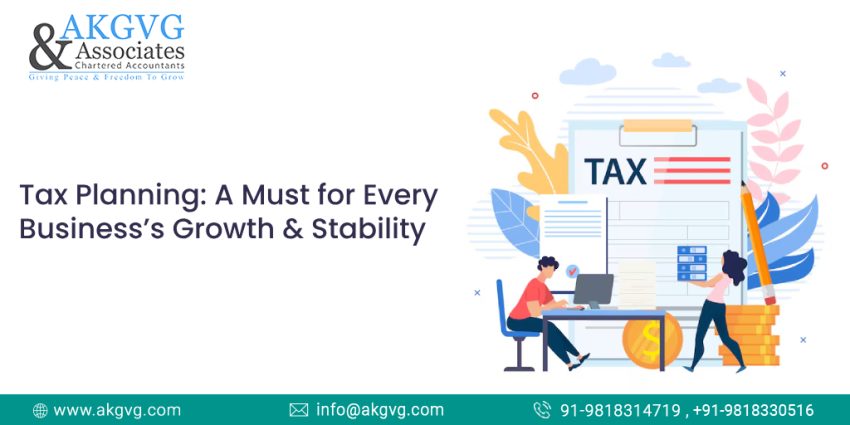Tax planning in the modern competitive and compliance-driven world has gone a long way beyond making money savings. It is a responsible financial habit that makes the company more stable, and it helps in the personal and business development. By strategizing their taxes in advance people and firms can effectively take more advantage of the deduction, rebates and investment programs that are legally permissible and ensure a substantial reduction in their taxes. It can also circumvent last minute stress; it can avoid legal penalties and it helps in better cash flow management. All in all, smart tax planning can help you re-invest the saved sum in future objectives, fuelling long-term success in the balanced tax environment.
What is the Importance of Tax Planning in Every Business?
Reduces Overall Tax Burden
Proper tax planning enables you to evade the total amount you are liable to pay as taxes through legal means of tax avoidance by taking advantage of the tax exemptions, deductions and later tax rebates as prescribed by the government. With the help of applicable clauses such as 80C, 80D, 80E, etc, an individual and a company can reduce the taxes to be paid without any complication of the law. This will enable you to pay less and maintain complete compliance while keeping more of your hard-earned money. Strategic planning will also guide you on the investment tools to use so that they match your financial objectives and save on taxes. This has an effect of additional spending money and greater utilization of financial assets to use in future.
Better Cash Flow Management
Good tax accounting enhances your money management capabilities, to ensure that you will be able to manage cash flow effectively during the year. Having a forecast on the amount you are likely to pay as taxes, you can plan on what to spend, invest and even save in a balanced manner. This minimises the danger of unexpected economic pressure during the time of filing or paying. There is predictability in cash flow which means that businesses can pay suppliers, salaries, and operational costs on a timely basis. It is not necessary for people or organizations to put off dealing with borrowing or liquidity concerns until the last minute. In a nutshell, financial planning can provide you with the clarity you need on how to spend your money and help you have smoother financial operations without any hitches that are not necessary.
Ensures Full Legal Compliance
Good tax planning has one of the greatest benefits of ensuring comprehensive compliance with the current tax laws and regulations. By keeping up to date with the recent developments to the income tax and GST laws, you can avoid late penalties, interest, and fees accrued because of non-compliance. Delivery of accurate documentation through submission of actual returns results in your financial report being clean and useful during audit and assessment. This ensures you do not face any legal predicaments and builds you a better repute with regulatory bodies. Everything considered, tax planning ensures you observe all deadlines and maintain a clean, credible record in the financial community.
Promotes Investment & Long-Term Growth
These options aid you to accumulate wealth and long-term financial well-being along with reducing your taxable income. Companies can invest their tax cut strategically in acquiring talent, modernizing or in expansion. The dollar saved may go towards retirement, home ownership, and/or child education. Accordingly, tax planning contributes to the financial growth and stability because it acts as a connection between successful savings and wealth creation.
This content is meant for information only and should not be considered as an advice or legal opinion, or otherwise. AKGVG & Associates does not intend to advertise its services through this.
Also Read: Tax planning consultant: Your route to economic viability

